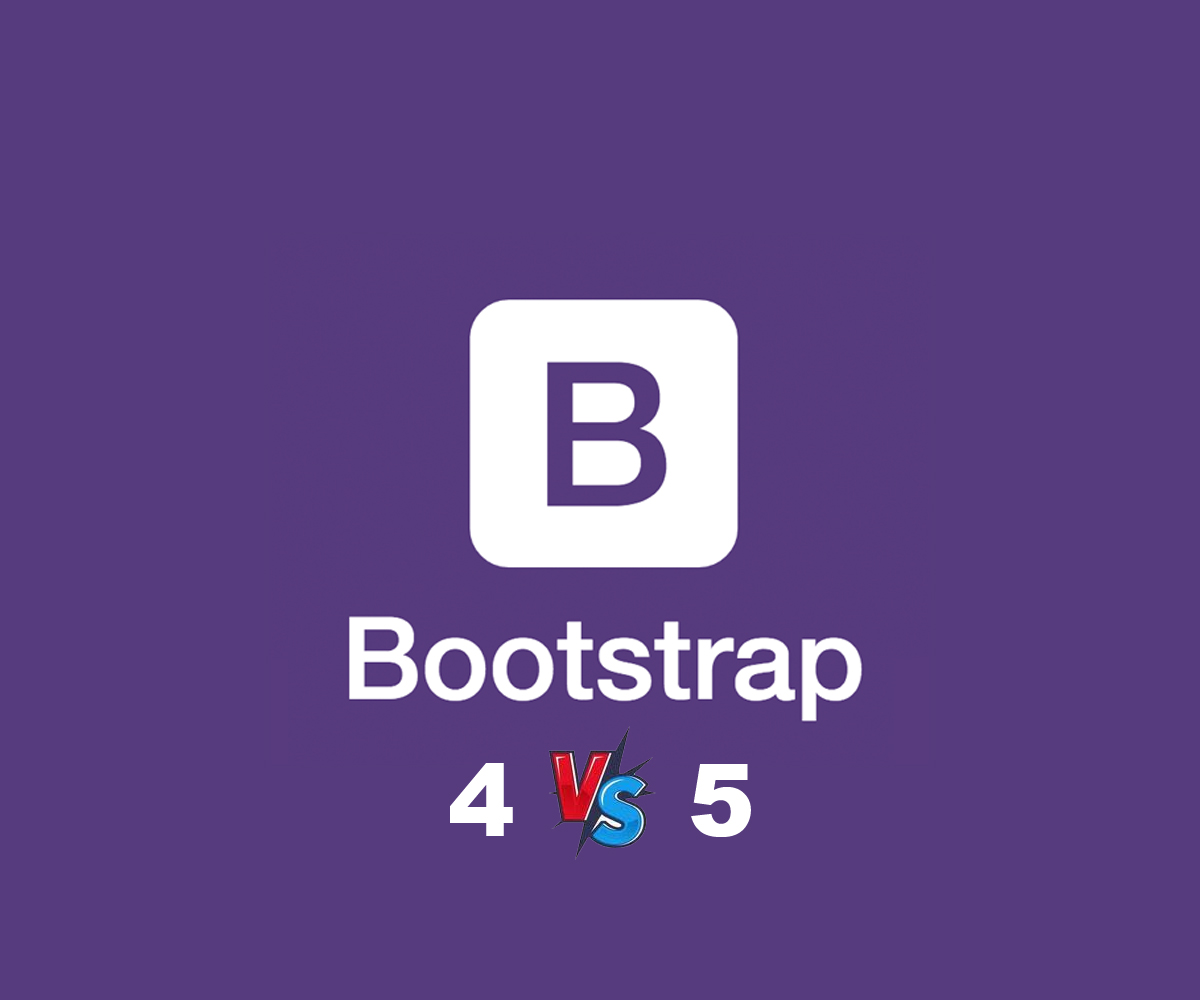Major Difference Between Bootstrap 4 and Bootstrap 5 framework

Difference Between Bootstrap 4 and Bootstrap 5
Bootstrap is a widely-used, open-source CSS framework that has evolved significantly since its initial release. Two of its recent versions, Bootstrap 4 and Bootstrap 5, have seen major improvements and changes. While both versions share a lot of similarities, there are a number of differences worth noting. This blog post aims to highlight and explain the key differences between Bootstrap 4 and Bootstrap 5.
1. jQuery Dependency:
In Bootstrap 4, jQuery was a primary dependency, used to create interactive elements like dropdowns, modals, tooltips, and so on. However, in Bootstrap 5, the team decided to drop jQuery as a dependency. Instead, they opted for vanilla JavaScript to provide better performance and ensure future web compatibility.
2. Introduction of CSS Custom Properties:
Bootstrap 5 introduced the use of CSS custom properties, also known as CSS variables. This makes it easier to customize Bootstrap components and build responsive designs. This is a shift from Bootstrap 4, which used primarily SASS variables for customization.
3. Removal of Card Decks:
Card decks, which were used in Bootstrap 4 to create equal height rows of cards, have been removed in Bootstrap 5. Instead, Bootstrap 5 uses grid system with flex box to achieve the same effect, making it more flexible and easier to use.
4. Improved Grid System:
Bootstrap 5 introduced a new grid tier, “xxl”, to better handle larger screens. The grid system in Bootstrap 5 is an improved version, providing more flexibility and better control over layouts.
5. Updated Forms:
Bootstrap 5 brought a major change to its form design. The new form layout is more modern, fully customizable, and easier to use, enhancing the user experience significantly compared to Bootstrap 4.
6. Enhanced Customization:
With Bootstrap 5, the level of customization increased compared to Bootstrap 4. More SCSS variables, SVG icon library, increased utility classes, and CSS custom properties are just a few of the many improvements Bootstrap 5 has brought for developers.
7. Improved Accessibility:
Bootstrap 5 has been designed with improved accessibility features. This includes better color contrast, form controls, and focus styles, making web content more accessible to a wider range of users, including those with disabilities.
8. Native Offcanvas Component:
In Bootstrap 5, a new component called Offcanvas has been introduced. This is used for displaying contextual information that can be toggled off and on screen with a dismissible overlay. It’s a native component in Bootstrap 5, unlike Bootstrap 4 where it had to be implemented manually.
In conclusion, both Bootstrap 4 and 5 have their own unique features and use cases. Bootstrap 5 is definitely a step forward in terms of features, performance, and customization. However, the choice between the two largely depends on the specific needs and context of your project.